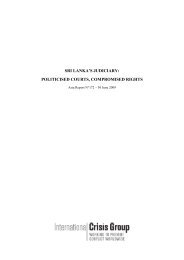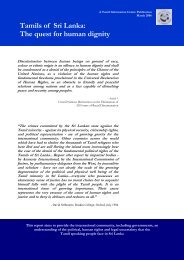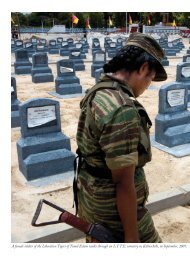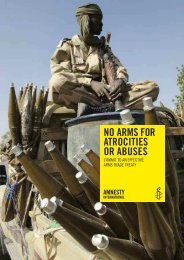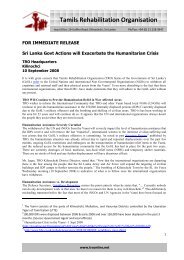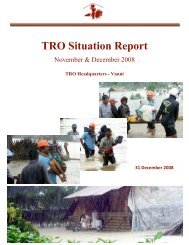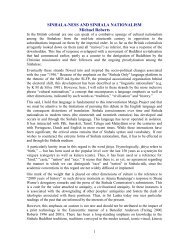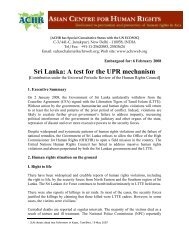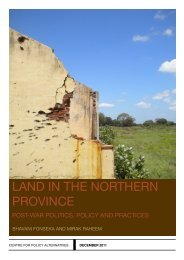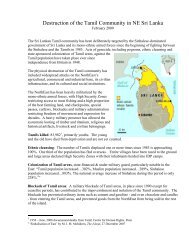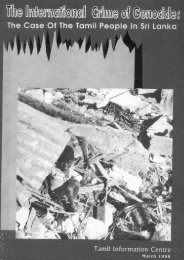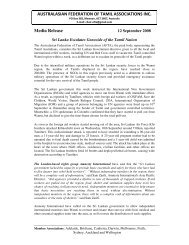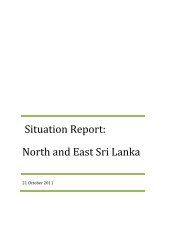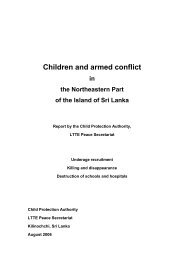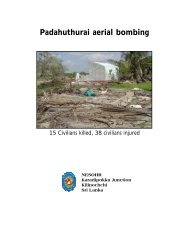Create successful ePaper yourself
Turn your PDF publications into a flip-book with our unique Google optimized e-Paper software.
<strong>Lest</strong> we forget – Massacres of Tamils 1956 2002<br />
this the Banda-Chelvanayagam pact was signed. This was quickly abrogated when<br />
the opposition party, the UNP, launched an anti-Tamil campaign.<br />
In May 1958, plans were ahead for one of the Tamil Political Party conference to be<br />
held in Vavuniya. Tamils travelling by train from Batticaloa and Amparai for the<br />
conference were attacked by Sinhala mobs in Polonnaruwa. Following this incident,<br />
further violence against Tamils were let loose throughout the island.<br />
Women were raped and Tamil property was damaged. A priest was burnt alive<br />
inside his Kathirvelayutha temple in Pananthura. The Sri Lankan government<br />
looked on as the violence against Tamils continued. Many Tamil homes were set<br />
alight. Babies were dropped in hot tar.<br />
<strong>We</strong>ll known journalist Tarzi Vittachchi wrote the famous book, Emergency 58,<br />
about this pogramme after he was expelled from the country.<br />
More than 300 Tamils were killed in this pogromme<br />
3. Tamil research conference massacre 10.01.1974<br />
Tamils were preparing on a grand<br />
scale to hold a Tamil Research<br />
conference in Jaffna during 3-10<br />
January in 1974. The government of<br />
Sri Lanka at that time did not like<br />
holding this Tamil research<br />
conference in Jaffna. The<br />
government continued to place<br />
hurdles to the organizers in Colombo<br />
and also in Jaffna through the Mayor<br />
of Jaffna. Permission to construct the<br />
open air platforms for the conference was held back until the very last minute.<br />
Many researchers who wanted to travel to Jaffna for the conference from other<br />
countries were refused visa.<br />
In spite of these hurdles, the conference organizers and the Tamil people were<br />
determined to persist with the arrangements. Seeing the support of the Tamil people<br />
for holding the conference the<br />
government came down a little<br />
and issued visas to a limited<br />
number of researchers.<br />
The President of the conference<br />
organizing committee,<br />
Thambaih, did not like holding<br />
the conference in Jaffna. He,<br />
therefore, resigned from his post.<br />
Prof Vidhyanandan took over the<br />
responsibility of the President. The conference started on 3 January. Hundreds of<br />
thousands of people from different parts of Jaffna came into town to attend the<br />
Report by NESOHR,<br />
Information Collected by SNE<br />
2



